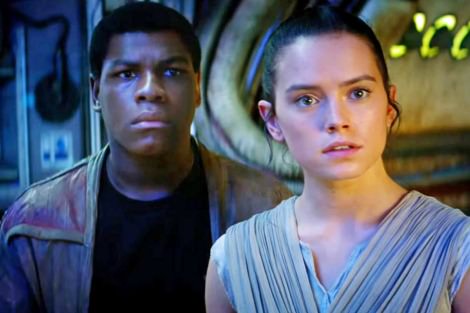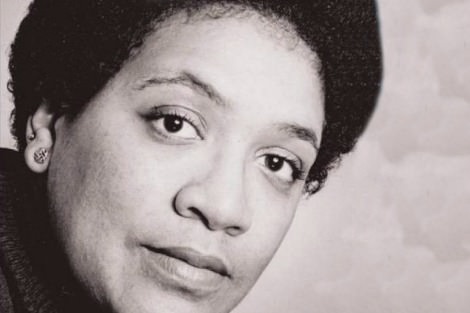Keywords: Eureka Street Tv
-

ARTS AND CULTURE
- Tim Kroenert
- 01 September 2016
There are hints of darkness behind the laughs. We learn Brent spent time in an institution some time after the original 'documentary' aired. He is shunned by his band members, who see themselves as reluctant employees rather than friends. What emerges is a rather affecting portrait of a man whose self-identity is at total odds with reality, and threatening to come crashing disastrously down.
READ MORE 
-

AUSTRALIA
- Fatima Measham
- 05 August 2016
Perhaps what will ultimately convince media and entertainment companies that it is in their interest to be sincere about diversity is that there's money in it. A UCLA study found that in 2014, eight films that had diverse casts (out of 163) also had the highest median global revenues and returns on investment. In addition, TV shows with majority non-white casts rated extremely well, even among white households. This challenges conventions around what media consumers find appealing.
READ MORE 
-

ARTS AND CULTURE
- Tim Kroenert
- 23 June 2016
7 Comments
That McGuire, eventually, and presumably under pressure from the club's board and a major sponsor, offered what seemed to be a sincere apology, barely diminishes the fact that the comments were made in the first place, compensates for the lack of real repercussions, or excuses the time and effort that was required to get the incident on the agenda at all. Like a good parable, Mustang illuminates the ethical deficit of such a scenario, where women can so readily be bulldozed by powerful male voices.
READ MORE 
-

ARTS AND CULTURE
- Tim Kroenert
- 17 June 2016
In one scene, as Taylor and Davis argue, the dialogue comes down and the score comes up; her voice is literally taken from her. When Davis then physically assaults her, the message is clear: his music and his violence are notches on the same spectrum. This conflation of creativity with destructiveness is a typical error of mainstream biopics about great artists who were not nice people. Yet applied in the context of spousal abuse it is not only specious but ethically dubious, even dangerous.
READ MORE 
-

ARTS AND CULTURE
- Tim Kroenert
- 09 June 2016
Vice-principal Rickard claims the credit for having lifting the status of the once struggling public school, and sees in the smart but troubled new student Mark both the potential to do well and a danger to his own legacy. For his own part Mark, who was previously kicked out of the private school to which he had earned a scholarship, sees in Rickard a misguided do-gooder and, later, something a little more dangerous: an ambitious man whose ego is the flipside of insecurity.
READ MORE 
-

ARTS AND CULTURE
As is the time-honoured tradition of Hollywood PIs, Holland has long bound the wounds of some unresolved grief in alcohol and cynicism. Notwithstanding individual tastes that are by no means aligned with gender, this is the kind of movie that can tend to appeal to puerile male interests while diminishing respect for women. In this regard Shane Black, a mainstream filmmaker who is more self-aware than most, tries to have his cake and eat it too, by both drawing and subverting the objectifying male gaze.
READ MORE 
-

ARTS AND CULTURE
- Darby Hudson
- 13 April 2016
3 Comments
Thinking my jadedness of the nine-to-five was vindicated, I crossed the road at lunchtime where this tow-truck was waiting its turn at the lights. The trucker had 'Born on the Bayou' by Credence blasting through open windows. Thought he had an amazing sound system. Then realised he had a drum-kit set up on his dash and was going for it with his sticks in time to the tune. He made his day job look easy — and all of a sudden I felt like a small little angry man. He made my week.
READ MORE 
-

AUSTRALIA
- Somayra Ismailjee
- 24 February 2016
4 Comments
Feminist writer Audre Lorde wrote that 'Caring for myself is not self-indulgence, it is self-preservation, and that is an act of political warfare.' In medical professions, the term 'self-care' originated in reference to the self-management of illness. Self-care, however, also exists in the context of social justice, extending beyond physical wellness to cater for a holistic approach that includes emotional, mental and spiritual fulfilment. The need for this is rooted in the burden of oppression.
READ MORE 
-

EUREKA STREET TV
- Peter Kirkwood
- 25 November 2015
'The people who were most impacted were people in developing countries who I've cared about my whole life. And then I started having grandchildren too, so that passion to do something about climate change was turbo charged. The thought of little kids being swept out to sea because of a typhoon, or killed in a cyclone - they haunt me.' Thea Ormerod, President of Australian Religious Response to Climate Change, was arrested last year while protesting the Maules Creek mine site in NSW.
READ MORE 
-

ARTS AND CULTURE
- Tim Kroenert
- 19 November 2015
1 Comment
Following its whitewashing of 'wife-beater' Ant-Man and the Black Widow slut-shaming debacle, Marvel has a long way to go to show it is not one big boys club. Alias, basis of the new series Jessica Jones, is one example of a modern day Marvel comic that, in the words of pop culture critic Roz Kaveney, offers a 'rebuke to the convenient pieties of the comic book', by proving that comics can be thematically rich, and can take serious issues — such as the physical and sexual abuse of women by men — seriously.
READ MORE 
-

EUREKA STREET TV
- Peter Kirkwood
- 28 October 2015
4 Comments
'How we address radicalisation as a psychologist is to help people to examine their way of thinking. Every form of radicalisation and fundamentalism is to do with rigidity in the way people think. Our job is to help people to see that rigidity in anything doesn't work.' Clinical psychologist Shehzi Yusaf has a particular interest in the role of religion and spirituality in mental health. She is based in Parramatta, the site of the recent murder of NSW police employee Curtis Cheng by 15-year-old Farhad Jabar.
READ MORE 
-

ARTS AND CULTURE
- Tim Kroenert
- 01 October 2015
4 Comments
Lady Macbeth is left somewhere in the realm of caricature, her 'Out damned spot' soliloquy oddly decontextualised and the circumstances of her death diminished and confused. That said, the conflation of the Macbeths' conspiracy to commit regicide with an act of discreet marital sex is a potent image of their moral codependency. This faithful adaptation by Australian director Justin Kurzel is grimmer even than Polanski's 1971 version, which it is set to displace as the standard-bearer adaptation.
READ MORE 